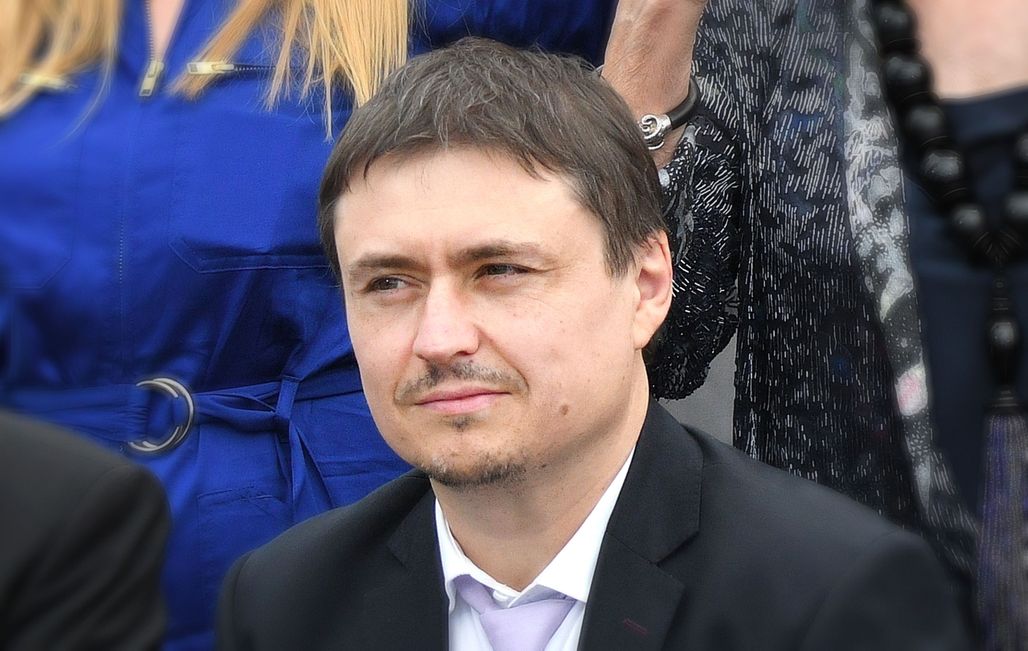
Interview with Cristian Mungiu, President of the Cinéfondation and Short Films Jury

He is one of the few filmmakers to have accomplished the feat of winning a Palme d'or for their second feature film. It was in 2007 for 4 luni, 3 saptamâni si 2 zile (4 months, 3 weeks and 2 days). Ten years and three films later, including a Best Screenplay Award for După dealuri (Beyond the Hills) in 2012 and a Best Director Award for Bacalaureat (Graduation) in 2016, Cristian Mungiu has paved the way for a whole new generation of young filmmakers thanks to his ability to reinvent himself without compromising his work. As President of the Short Films Jury and the Cinéfondation, he talks about those first few crucial steps behind the camera.
How important are short films, in your opinion?
Above all, they allow a young director to make all the mistakes that he mustn't make later on. The medium is an unusual one in that some subjects simply don't take to this format. In principle, for a short film to work, it should capture a tiny moment of a wider story, with originality. Mine were more like compressed feature films. I already felt the need to create a complex structure, with lots of different situations, in which surprises emerged. My short films gave me the opportunity to travel, to meet other directors, and to get feedback on my work from the public.
How do they prepare you for a first feature film?
Making a short film is a chance to get to grips with managing a set and a cast of actors, some of whom can be older than you… which is always a bit tricky at first! For me, it was at this point that my desire to shoot using longer takes really took hold. A director can't master the different ranges of shots in their first feature film if they haven't already managed it in a short one. The short film format also meant I didn't have to take a detour into the TV industry, and potentially lose my way.
What mistakes must be avoided in a first film?
We have a tendency to want to show that we're inventive and that we know how to do something just as well as others. But in cinema, it really all comes together when you manage to create something simple that reflects you in some way. What's important is to make something that is a bit personal, that expresses your personality. In my case, the first film I made was too complex, and my narrative influences were too evident. Your first feature film is your business card, and so much depends on it. It effectively establishes your position on the chessboard of world cinema.
Isn't the hardest thing about a career in film staying on top of your game?
Absolutely. It's easy to get noticed with your first film. Especially since most funding tends to be given to first films. When you start out, your ideas are clear, you know where you want to go and you have lots of ideas in mind. Where you go from there is much more complicated… But everything is possible in cinema. It all depends on your ability to reinvent yourself and to keep reinventing your work, quite significantly, without losing your style.
“Making films that are liked isn’t the be all and end all”
How important is a passion for cinema when creating a first feature film?
It's important to be a cinephile, but for me, it's always been about observing reality, whatever the stage of my career. I find my inspiration in the real world. To look for it in films is a mistake because the essence of the silver screen is for it to be an interpretation of reality.
In your opinion, is it essential to attend film school?
I think it's an important step in a director's career, but it all depends on the industry in which you start out. For me, going to film school was important, especially at the time when I was a student, in the 1990s. Romania's film industry is highly formatted and without a connection to this school, it would have been difficult for me to network and get spotted. Thirty years later, anyone can make a movie with their phone, so the situation is a little different. But qualifying at a film school allows you to acquire a certain structure and to familiarise yourself with the medium of cinematography.
How do you avoid a failed second film?
I don't think there's a universal formula. A misstep can happen at any point in a career. Besides, is it such a bad thing to make a mistake? What's important is being honest with yourself and your abilities. In cinema, it's very easy to manipulate the audience and that's why you have to try and stay humble. A film can only fail if it is framed by objectives. If a film doesn't achieve its intended success, it doesn't really matter. Making films that are liked isn't the be all and end all.


